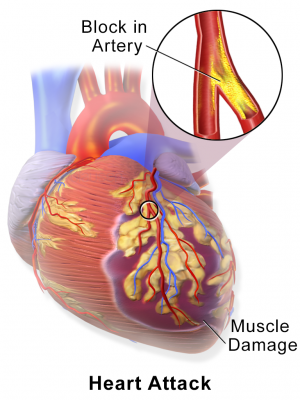
The latest analysis from The North American COVID-19 STEMI (NACMI) was presented today as late-breaking clinical research at the Society for Cardiovascular Angiography & Interventions (SCAI) 2022 Scientific Sessions. The findings show clinical characteristics and management strategies differ by gender, but in-hospital mortality rates remained high among both groups. The findings were simultaneously published in JSCAI.
In the United States, someone experiences a heart attack every 40 seconds (CDC). Of these patients, more than 25% will experience a more severe type of heart attack, an ST-elevated myocardial infarction, or STEMI caused by the sudden, total blockage of a coronary artery. Pre-COVID-19 mortality in STEMI patients was below 5%. Research is underway to better understand the effects of COVID-19 on cardiovascular diseases and outcomes.
In this analysis, the authors compared clinical characteristics, management strategies and outcomes of male and female STEMI patients with COVID-19 patients. Among 585 with STEMI and COVID-19, 154 (26.3%) were female.
Compared to males, females were significantly older, had higher rates of diabetes and stroke/TIA and statin on admission. Males were more likely to present with chest pain whereas females presented with dyspnea, or labored breathing. Females more often had STEMI without an identified culprit lesion. Use of primary percutenous coronatry intervention (PCI) was significantly higher in males, whereas medical therapy was higher in females. In-hospital mortality was 33% for females and 27% for males (p=0.217); there were also no significant sex differences in-hospital stroke or re-infarction, or composite primary endpoint.
“The significant increase in mortality among both men and women in this study highlights the need for continued research to better understand the long-term effects of COVID-19 on cardiovascular health,” said Odayme Quesada, MD, Medical Director at The Christ Hospital Women’s Heart Center in Cincinnati, OH. “Our study also points to the lack of research and clear guidance on how to treat STEMI patients without an identified culprit lesion, many of which are women. We hope additional analysis of these patient characteristics will help further inform clinicians on best the treatment approach and ultimately improve patient outcomes.”
The NACMI registry is a collaboration between SCAI, the American College of Cardiology and the Canadian Association of Interventional Cardiology. The registry was established in 2020 with the aim to define baseline characteristics and management strategies and outcome data for COVID-19 patients presenting with STEMI. More than 60 medical centers across North America and Canada contributed data to the registry.
Source: Read Full Article
